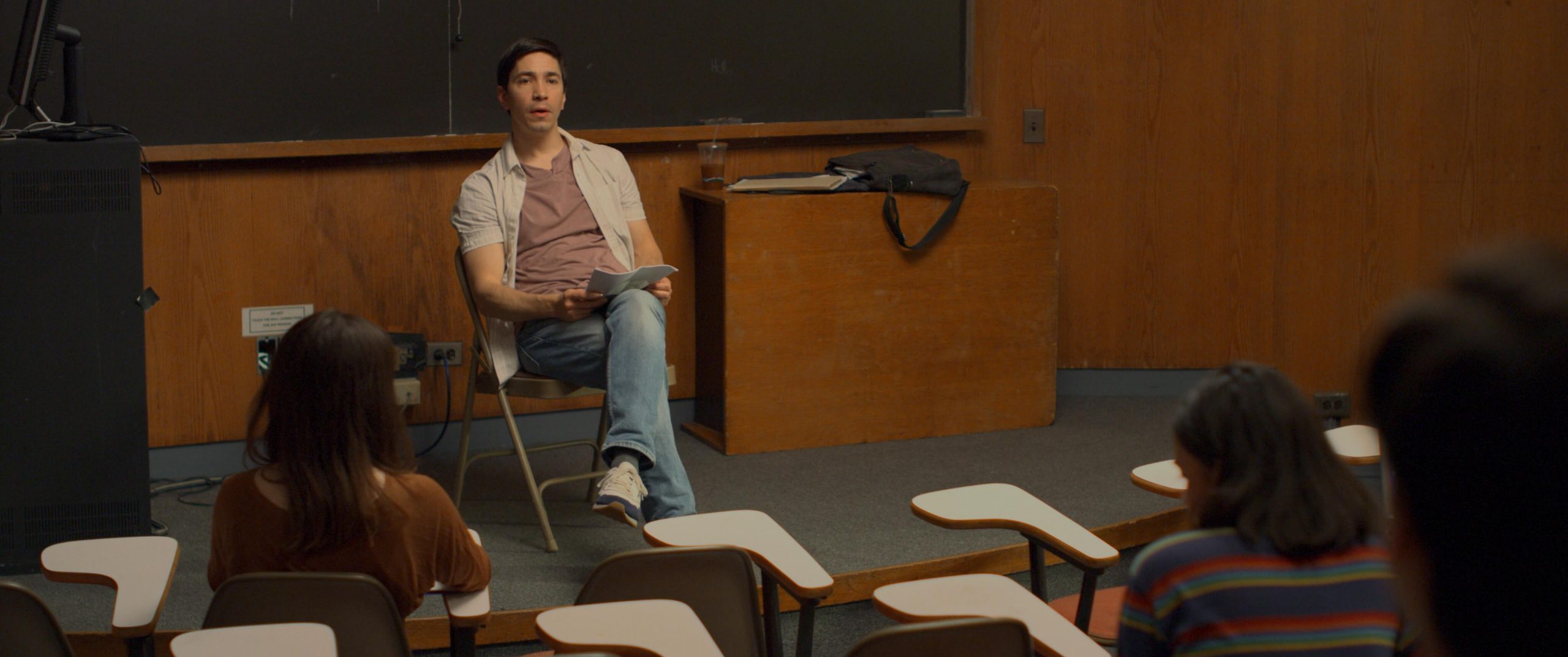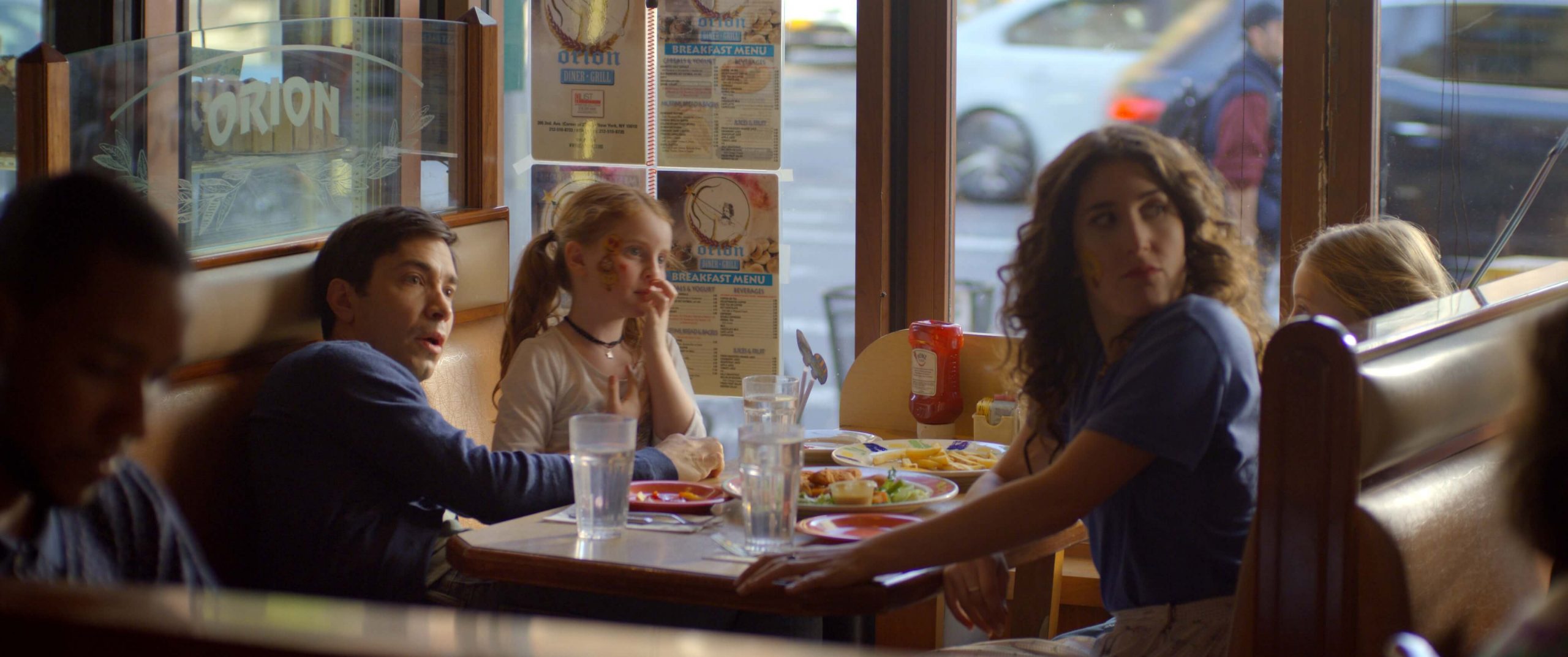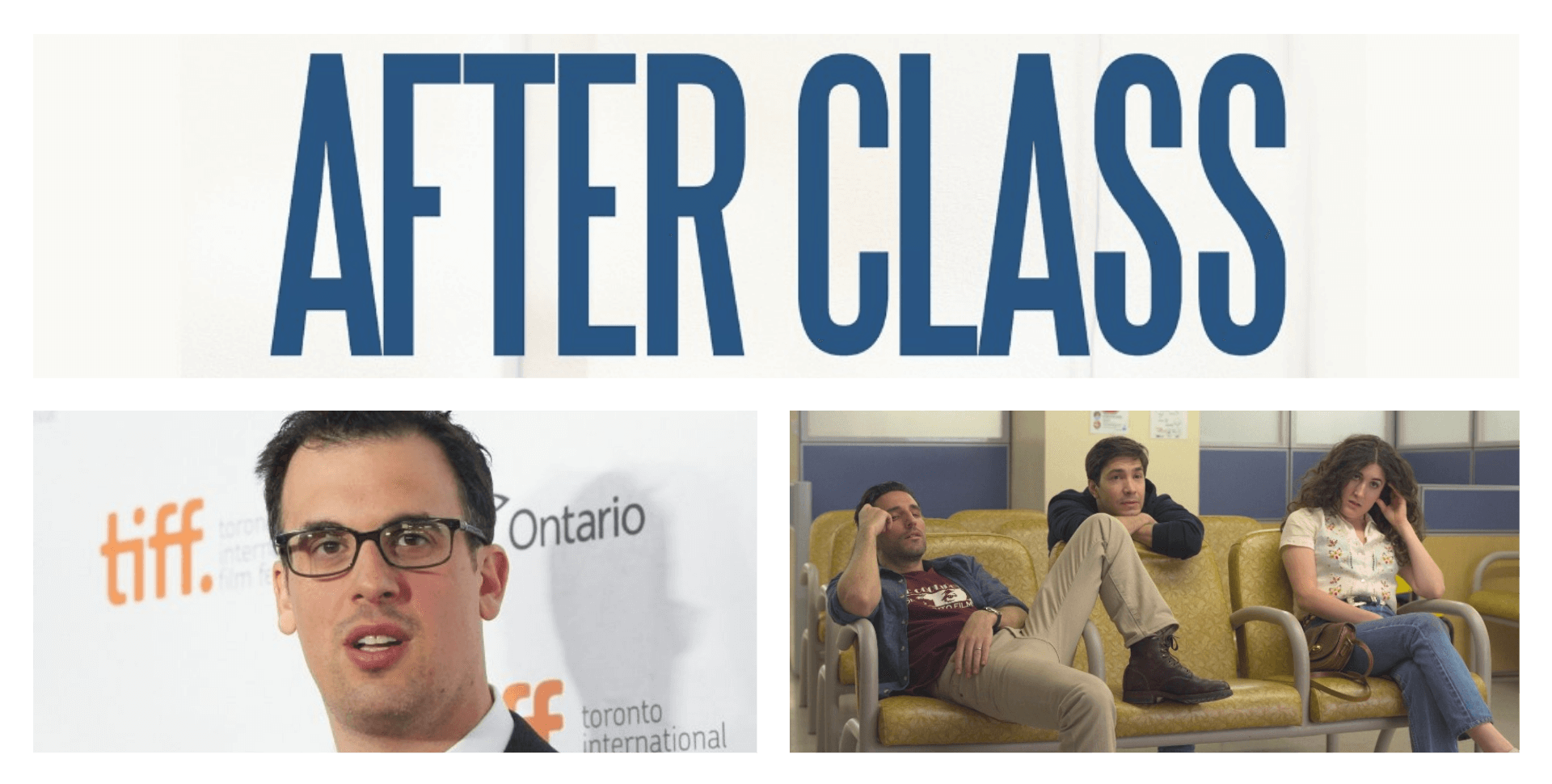Written and directed by Daniel Schechter, After Class (formerly Safe Spaces) is the comedy/drama film that follows Josh (Justin Long), a well-intentioned NYC college professor as he defends his controversial behavior overstepping the line while teaching his class. Due to his grandmother requiring hospice care, Josh reconnects with his family (Fran Drescher, Richard Schiff, Kate Berlant) as they come to terms with having to lose someone they love.
Gravitas Ventures is set to release After Class in select theaters and on VOD December 6, 2019.
After Class shows us how someone well-meaning can land into hot water from a simple miscommunication when teaching in the current politically correct climate. Josh (Justin Long) attempts to thoughtfully navigate through the situation with tact but ultimately loses to the bureaucratic process. What specific sources of inspiration did you use to write the screenplay for After Class?
Well, first, I think I have to somewhat disagree with the premise of your question. I don't personally think he does navigate much thoughtfully or tactfully, but rather emotionally. I'd also say him "losing to the bureaucratic process" would also be debatable and in the eye of the beholder. The inspiration for the film came from both teaching and just living through the revolution of 2015-2018. Seeing the success of Black Lives Matter and Me Too. Seeing how genuine activism can turn toxic on social media. Examining my own defensive behavior, which is probably representative of a lot of white men during that time, and trying to decide for myself what criticism was worth validating or not.
What was the casting process like for After Class? Did you have certain actors in mind when you were writing the screenplay?
It was about a third offers, a third traditional auditions and a third finding tapes off the internet. I think Richard Schiff was the one actor I was consciously thinking about while writing, because his role was so tricky in many ways. My mother recommended Fran Drescher to play this version of her, I suppose, and that got me genuinely excited and she was the first person to sign on. Then came Justin, who made the movie a reality. But the goal with casting was to try and make the family look like an actual family and most of the students seem like they are from "the real world," and I think we accomplished both of those things with a massive team effort.

What were your favorite scenes to shoot for After Class? What type of directions did you give to the cast and was improv used at all?
I think the school material was the most fun to shoot, for several reasons. It was just a bit less chaotic than the rest of the production. We had more time and we were also in a really comfortable location for filming (not always the case with an indie). Also, the material just shined a bit more effortlessly and the students brought a lot to those scenes and a lot out of Justin we hadn't seen before. I think everyone we cast had some game with improv and Justin loved it, so we used plenty. The movie is probably 30% improv? If I had to take a guess. Other than that, my job is usually more to nudge than direct. Well, cast actors usually don't need much, but I'd say the vibe was usually "this isn't a satire, keep it real."
What do you hope audiences will take away from the film?
Empathy is the most important theme. And that perhaps being so incredibly certain about your opinions and positions isn't always helpful to your movement. That turning someone's mistake into a "teachable moment" is so much more impactful than writing a devastating tweet about your superiority to their behavior. That I sincerely hope nuance and compromise comes back into the culture a bit more, because we on the left are eating ourselves as the right rises to a terrifying amount of power in the vacuum.

What films/directors have had the biggest impact on your filmmaking and why?
Woody Allen. Of course, there are countless others, but it's just hard to ignore the impact he had on me, watching his films over and over at such a young, impressionable age. Whenever you make a male-driven, funny movie in NYC about relationships and family, his shadow is unavoidable, but his body of work is so much more than that. Dark thrillers, broad comedies, intense dramas... But this film oddly had less influences from film and was more or less me trying to capture a certain time in my life and get that right. And, always, The Sopranos, from which I stole something massive, but I won't reveal it unless someone asks.
What’s next for you?
I have two projects that are fresh and ready to go, but of course, finding cast and financing is the tricky part. Stay tuned.
